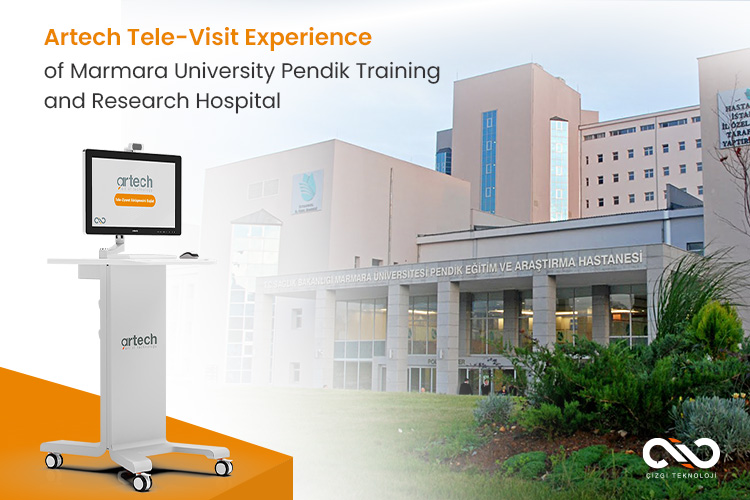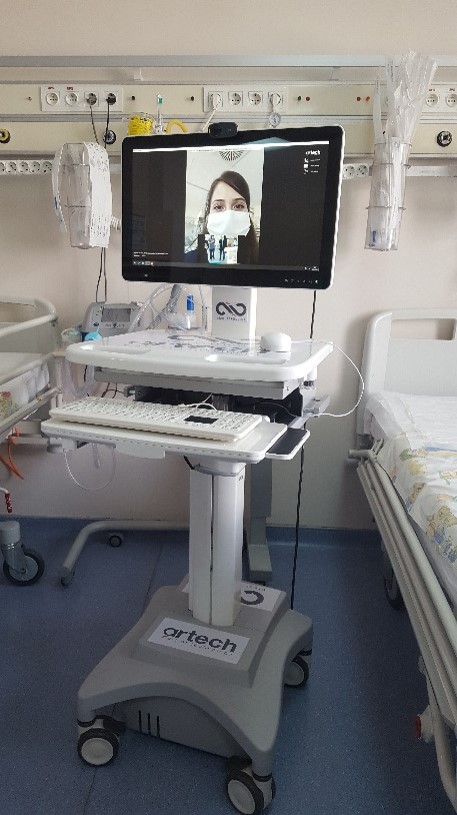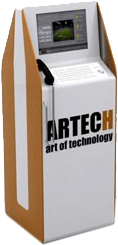Artech Tele-Visit Experience of Marmara University Pendik Training and Research Hospital

A Solution Strengthening the Connection Between Patients and Families
Marmara University Pendik Training and Research Hospital has been providing healthcare services since 2010, serving an average of 200,000 patients annually. As one of Turkey's leading healthcare institutions, the hospital performs over 6,000 surgeries each year and houses expert physicians in various fields.
Pediatric Intensive Care Specialist Dr. Feyza İnceköy Girgin highlights the importance of the Artech Tele-Visit solution, developed for intensive care patients and their families:
📌 "It is crucial for patients to know that they are not alone. This provides great comfort for families as well."
Reducing Patient and Family Anxiety During the Pandemic
Before the pandemic, patients' families were allowed to visit twice a day. These visits enabled families to receive direct updates on their loved ones, see their environment, and engage in personal communication. However, due to pandemic restrictions, physical visits were suspended, leading to a significant increase in family anxiety levels. 
📌 "Families want to see their children, and children want to see their families."
📌 "Verbal updates alone are not enough; visual contact provides immense relief."
To address this issue, the hospital collaborated with Çizgi Teknoloji to develop Artech Tele-Visit, enabling video communication between patients and their families.
Digitizing Patient-Family Communication with Artech Tele-Visit
The Artech Tele-Visit device was designed to be ergonomic and highly functional for hospital environments:
✔ Lightweight and portable design
✔ Seamless internet connectivity
✔ Easy-to-clean and disinfect structure
✔ Ergonomic design for easy transport between patient rooms
📌 "Çizgi Teknoloji’s team responded promptly to all our requests and provided continuous support."
📌 "We disinfected the device using hospital sanitation products without any issues."
Benefits for Patients and Families
- Patients’ families received video call invitations through the device without needing a personal phone.
- Real-time video calls were established between families and patients.
- Doctors simultaneously shared medical updates with families.
📌 "Families sent thank-you messages to hospital administration, expressing their satisfaction with the system."
Beyond pediatric intensive care, the Artech Tele-Visit solution is also ideal for:
✔ Long-term post-anesthesia recovery rooms
✔ Bone marrow and organ transplant units
✔ Intensive care units with visitation restrictions
Artech Tele-Visit System eliminates distance between patients and families, providing a safe and innovative communication solution.



 English
English
 TR
TR